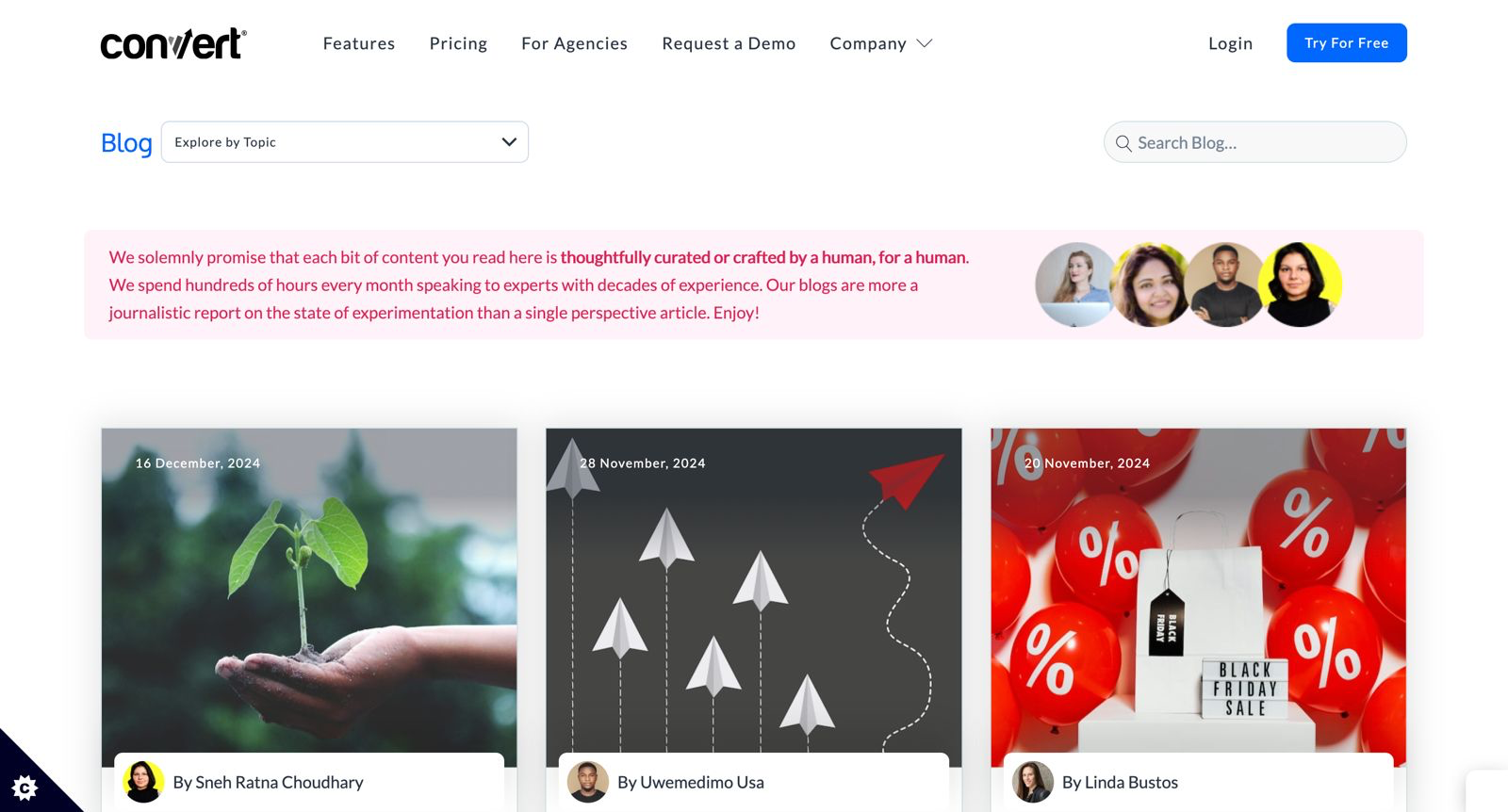I’m in no doubt. AI will change the content people are paid to write. But it’s not all bad. If you can work out how to produce work better than AI, stuff that real people want to read of their own free will, there’s a market for your work.
Luckily there’s a secret weapon that AI can’t replicate. Human stories and experiences. In the writing world these humans are referred to somewhat clinically as sources or subject matter experts (SMEs). And they can really help improve your work as Rachel explains:
“Content can be a bit of a snooze-fest without expert opinions; it can feel quite flat, and in the AI age writers are operating in, it’s going to feel like all the other AI-produced content OTHER brands are churning out. Using subject matter experts is essential because it sets you apart.”

Rachel smith
Freelance journalist and copywriter at RS Copy and Content
What are Subject Matter Experts?
Basically, anyone with stories, experiences, and opinions about a specific topic. They could be people working in your business or strangers you seek out. You’ll notice I didn’t say “expert.” I’m not really a fan of the term. The word can put off people who think they aren’t smart enough, and writers rarely need to speak to THE expert. However for ease I’ll refer to these people as SMEs.
What most writers need is an SMEs with the right level of experience, and something to say. I’ve seen writers targeting directors or CEOs perhaps thinking they have the most experience. But unless you’re writing about management topics these people are often far away from the actual doing. Better to find SMEs who are less senior but are working at the coal face of the topic you’re writing about.
The idea is that you contact SMEs to ask if they’d like to contribute their expertise to your article in the form of a quote. You could ask them to:
- Give you a definition.
- Explain a complex topic.
- Provide examples.
- Share anecdotes, stories, or personal experiences.
- Give their opinion on a topic or piece of news.
How can featuring SMEs help you beat AI content?
Make your content less boring
Be honest. How many articles do you read to the end? Most content is boring and that’s before we let AI anywhere near it. But AI is trained on that very content, so its output is similarly boring. As ChatGPT just told me “AI tools excel at generating generic, surface-level content.” This is fine if you want definitions or instructions but if you want to excite, compel, educate, or convince people, not so much.
What helps are stories. Things people can connect with. Things that are interesting and original. I’ve heard some of the wildest stories during interviews with SMEs over the years. It’s all about asking questions that open people up to sharing. Much more interesting than any AI hallucination.
I’ve also found that speaking to SMEs early in the writing process can help me understand what my audience really wants to know, things I wouldn’t have been aware of otherwise. Things not covered in the generic articles. Faizan explains how he does it.
“I make sure that SMEs take a look at the outline and brief and always receive unique insights. Sometimes, the comments from experts change the arc of the article, which is an excellent problem to have in the initial stage of development. Expert opinion does not mean having proper ‘quotes’ from them; their suggestions on the article structure, content, and format are also a great way to do this.”

Faizan Fahim
Content Editor
Gain trust & SEO brownie points
Between the rise in online fraud and shady social media accounts, there’s a lot to be wary about online. But AI content is only going to make things worse. Firstly AI can hallucinate—or simply put, make stuff up. Some people have already fallen for it such as the law firm who submitted false legal examples fabricated by ChatGPT. Secondly AI tends to be trained on data that exists on the internet—much of which isn’t fact.
Readers are becoming even more wary of trusting what they read online. Not great if you are writing on behalf of a business that is hoping to convince them of something. Tam explains more:
“In the vast space of social media, we’re constantly bombarded with opinions and references from unskilled individuals who often lack the depth of knowledge on the subjects they discuss. This results in “content without context”—posts that lack substance and accuracy.
Trust is becoming increasingly hard to earn. According to the Federal Trade Commission (FTC), over $10 billion in fraud was reported in 2023, along with 5.1 million consumer complaints. These staggering figures highlight a need for transparency and credibility in the content we consume and share.”

Tam Lawrence
Journalist, Publisher and the President of Urban Media Union at Aart & Kingsley Agency
That’s why some companies are posting notices on their blog to put readers at ease, like Convert.com.

So how can you build trust with random internet readers? Katie explains how she uses SMEs to build trust:
“As AI begins to saturate online content, it’s very hard to establish trust with readers and indeed publish the facts. That’s why it’s best to go straight to the source. Not only do you get their unique spin and personality, but the credibility to back it up.
They can share their expertise with their own context and stories - great for helping people understand the message. What’s more, this is great for Google’s Helpful Content Update - securing first-hand evidence. It’s something we do often when we write whitepapers for clients like Reuters. Every brief starts with thorough interviews, leaving no stone unturned.”

Katie Thompson
Director at Katie Lingo
That Helpful Content Update Katie mentioned now represents E-E-A-T which stands for experience, expertise, authoritativeness, and trustworthiness. While these aren’t specific ranking factors, Google does use E-E-A-T to rate content. Effectively; Google looks to see if your content includes real first hand experiences and whether the author or people quoted have relevant expertise to talk about the topic. Without these your content might be rated as less credible.
Distribution
Asking SMEs to contribute to your work can help your article reach a wider audience when they share the published article on social media.
You might start thinking, well, why not ask 100 people to give me a quote? Then bung them all into an article. Minimal writing for me and 100 people who will potentially share the article online. Fab!
But hold your horses. Is what you created of value? If not, people will not want to share it. They might actually ask to be removed from the piece if it comes across as spammy. So I’d advise against this approach unless it genuinely makes the article valuable.
Either way a ton of writers forget this little step that Rachel mentions which massively impacts if it’s shared at all.
“Using subject matter experts opens you up to a wider audience, especially if YOU share the content with the experts you’ve quoted and invite them to share it with their networks. So use your in-house subject matter experts, seek out fresh voices, and get your leaders or CEO talking. It’s your secret weapon in creating amazing content others will want to read and share.”

Rachel smith
Freelance journalist and copywriter at RS Copy and Content
What type of content could you get SME input?
Pretty much anywhere it would add value. Articles, research papers, newsletters, social media posts. However after asking a few content SMEs for their opinions they had a few specific use cases I hadn’t thought of.
Jason poetically offers some good examples:
“The best use for expert opinions is explaining empirical results. The second-best use is debunking someone else’s empirical results. The third-best use is predicting empirical results. The fourth-best use is adding context to them. In short, expert opinions are a vital link between truth and fact. And in content, they tend to serve as reinforcement for a point of view.”

Jason Patterson
Founder at Jewel Content Marketing Agency
But SMEs are not only to reinforce a perspective, they can convince readers.
“There’s a simple rule when trying to demonstrate expertise: show, don’t tell.
Let your experts do the talking! For example, when you’re selling high-value consulting projects, there’s nothing more convincing than having the very people who’ll work directly with your clients showcase their knowledge. That’s instant credibility. And if you’re promoting software? Those expert opinions go a long way in proving that you truly understand your users and their challenges. After all, no matter what space you’re in, marketing is about connection—and what better way to connect than through real people with real insights. Or you could stick to bland corporate statements peppered with some derivative of ‘we understand’ and see how far that gets you…”

Dave Heywood
Host of the Marketing Careers Uncovered podcast
Have I convinced you to include more SMEs in your content through this meta post about SMEs using SMEs? Let me know on LinkedIn.

